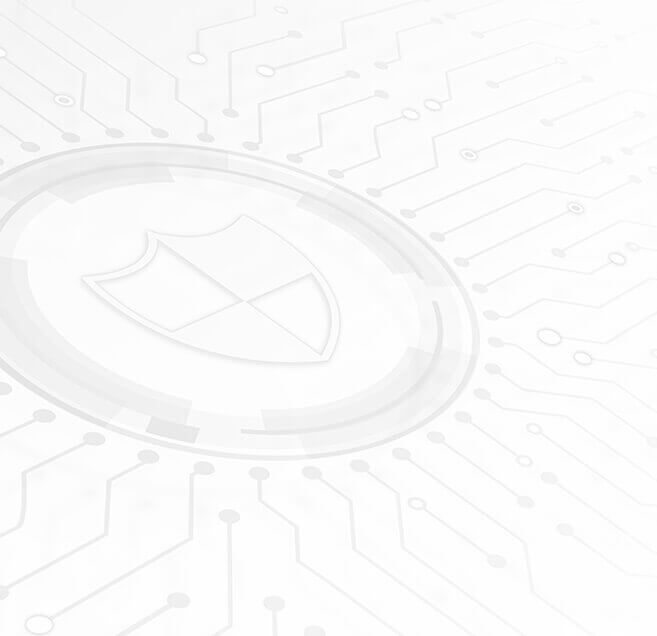
Scroll
Government
Find out how Mondas helps governmental organisations tackle data and cyber security challenges within the industry.
The Government is responsible for running the country; it allocates public money, sets tax codes, and directs the operation of key public services. Accordingly, the Government exists at the intersection of many different industries, and has access to a huge amount of sensitive data from all sectors. The varied nature of governmental work means that this data ranges from personal information and financial records, to lists of schools and hospitals across the nation, to classified state secrets. Importantly, governmental institutions improve the efficiency of their operations by digitising this information. As such, the industry stores a huge range of sensitive data on its online servers, and thus stands as an attractive target for cybercriminals.


Challenges for Governmental Organisations
The two main cybersecurity challenges facing you as a governmental organisation are protecting your data estates, and keeping your services operational.

Book your FREE demo


Data Protection
Personal Data
Governmental organisations have access to a huge volume of personally identifiable information. This includes citizens’ names, addresses, contact information, financial details, and medical records. It is important for you to ensure that this data remains secure and inaccessible to cyber criminals, because as a governmental organisation, you are under a duty to your citizens to protect their private information; there are various privacy regulations and data protection laws that must be adhered to when storing citizen data. In particular, the Data Protection Act 2018 dictates that you must abide by the General Data Protection Regulations (GDPR). Non-compliance with these standards would seriously undermine your legitimacy, and lead to a loss of public confidence.
Classified Information
Governmental organisations also retain a huge amount of confidential data, including political and economic strategies, and classified state intelligence. Importantly, the nature of this data heightens the risk of espionage, politically motivated attacks, and terrorist attacks. Therefore, it is crucial for your organisation to ensure this data remains secure and inaccessible to cybercriminals. The impacts of a breach could be monumental. In particular, a cyber attack could result in the eradication of national assets, the erosion of trust, or the vulnerability of the nation.


Remaining Operational
The second key challenge is ensuring that your services remain operational. Cyber attacks interrupt an organisation’s regular activities by slowing down or locking your systems. Within the governmental sector, this might impact the running of schools, hospitals, armed forces, transportation networks, and power grids. Citizens across the nation depend on having uninhibited access to these key governmental services and resources at all times. Therefore, it is vital for you to remain operational at all times; if your operations are disrupted, it could have a significant impact on key services across all industries.

Book your FREE demo
Common Attack Vectors
Phishing is a common attack vector that targets governmental organisations. These attacks most commonly manifest through malicious emails which are designed to deceive your employees into conducting certain acts. This could involve transferring data and capital to parties they shouldn’t, divulging their login credentials, or downloading malware onto their devices. These acts allow cybercriminals to compromise the wider organisation’s sensitive data and assets.
In November 2023, West Suffolk Council fell victim to a phishing scam. Fraudsters had hacked into one of the council’s suppliers’ email addresses, and sent them an email asking for various payments. The council obliged, and transferred over £52,000 before realising it was a scam.![]()
Ransomware attacks are prevalent within governmental organisations, and the pathway to infection typically involves deceptive phishing emails or compromised websites. Following the successful download of malicious software onto a company device, hackers will encrypt your company’s data, lock you out of your operating systems, and hold your files hostage until you pay a ransom. In most cases, this will result in your operations being reduced or entirely inhibited for weeks.
The demand for ransom is often heightened by a threat to publish your data on the dark web for failure to comply. The threat of data publication is significant for you as governmental bodies, because of the range, volume, and confidentiality of the data you store.
In December 2021, Gloucester City Council was subject to a ransomware attack that encrypted their network. The breach disrupted several key services, including housing benefit claims, council tax payments, covid related services, and leisure centre facility bookings.![]()
Wipers and destructive malware are an increasingly common attack vector targeting governmental organisations. Following the successful download of malicious software onto a company device, your organisation’s data will be completely destroyed, and cannot be recovered. These attacks tend to be conducted by hacktivists attempting to cause serious disruptions to governmental action, or inhibit it entirely.
In June 2017 a series of cyberattacks targeted various finance, energy, and governmental institutions across Ukraine. In some cases, the organisations’ files were entirely wiped or rewritten, meaning that it was not possible for them to be recovered. The UK Government concluded that the Russian government was responsible for the attacks, and conducted them with the aim of causing political damage and disruption.![]()


Particular Vulnerabilities
Third PartiesDoes your organisation rely on any third parties to perform various functions for you? Perhaps other organisations in the sector rely on your networks to function?
Governmental organisations sit at the intersection of many different sectors, which means that there are various third parties which require access to local government networks in order to fulfil their remits. In particular, social workers, healthcare staff, and the police will need to access these networks. If any third parties rely on accessing your networks, your vulnerability to cyberattacks will be heightened. This is because it is difficult to monitor and regulate the security of the external devices using your systems. In this way, third parties create a larger surface area for cybercriminals to target, and leave a greater number of entry points for them to exploit.
BudgetHave you set aside a sufficient budget to properly protect your assets?
Protecting your extensive estates of sensitive data is a priority for all governmental organisations. However, significant budget restraints frequently result in weak cybersecurity; there are not sufficient funds to invest in the necessary software or technical staff to protect your networks. Accordingly, governmental organisations frequently operate on outdated and poorly maintained security systems. This combination of low budgets and scarce resources culminates in vulnerable data estates which cybercriminals are able to exploit.
HacktivismDoes your organisation engage in any sensitive or confidential projects?
The very nature of governmental work leaves you vulnerable to cyber attacks. This is because the government makes critical decisions on the general running of the country. Because of this, governmental organisations are prone to hacktivism. This is the employment of cyber attacks to achieve social or political goals; organisations are targeted by these attacks in an attempt to protest against current policies or actions. Therefore, you might be situated in an inherently vulnerable position due to the nature of your work.
Human ErrorAre your employees sufficiently trained in recognising and reporting cyber attacks? Do you have strict policies in place about what information employees are allowed to share?
Insider threat constitutes a significant cybersecurity threat for governmental organisations. These threats manifest through employees with access to sensitive information. Significantly, insider threats can be both malicious and unwitting; they range from employees intentionally selling confidential data for their personal financial gain, to employees unwittingly falling victim to a cyber attack which results in the accidental release of information. The sensitive nature of your data means that there would be significant financial incentives for individuals to sell this on, and increased motivations for cybercriminals to exploit human error. Whether intentional or accidental, insider threat dominates the threat landscape for governmental organisations.
Sound familiar?
Get in touch with our experts to ensure your business is fully protected.
Consequences of a Cyber Attack
The two main consequences of a cyber attack within governmental organisations are business interruption and data breaches. These consequences are serious, and cause further difficulties, including:
Fines and Lawsuits
The nature of the data collected by governmental organisations means that you must adhere to strict regulatory requirements. These pertain to the way the data is stored, and the assurance that it will remain private. Therefore, you are under a duty to protect your citizens’ data (GDPR). If you fail to adequately protect this sensitive data, you might face fines from regulatory and auditing authorities, as well as legal repercussions and lawsuits.
In MAY 2017, the Information Commissioner’s Office (ICO) fined Basildon Council £150,000 for a data breach that had occurred in 2015, wherein a family’s sensitive personal data had been published online.![]()
Damage to Reputation
Cyber attacks will impact your reputation. If you experience a data leak, or are unable to maintain your key public services, it could result in a loss of public trust. This is significant because many governmental bodies are elected, and trust will have a material impact on your voters’ decisions.
Fraud
A data leak could result in identity theft or financial fraud, wherein your employees’ or citizens’ personal information and bank details are used by a fraudster. This could have significant consequences for the affected parties, including financial loss, ruined credit histories, and refused employment opportunities.
Financial Loss
Cyber attacks result in significant economic loss. If your services are inhibited for an extended period of time, it could result in reduced business operations across various governmental services. As such, financial loss has the opportunity to manifest through the cost of remediation, financial fraud, lawsuits and fines, ransom payments, and training programmes.
In October 2020, Hackney Council was hit by a ransomware attack that cost them £12.2 million. Several of its services reported significant budget overspends in order to redress their issues. The costs incurred by the council included £444,000 spent on IT consultancy, £152,000 on recovering their key systems, and £572,000 on the housing register.![]()
Safety Concerns
Governmental organisations retain a huge volume of sensitive data, including political and economic strategies, and classified state intelligence. Therefore, a data breach could result in espionage, politically motivated attacks, and terrorist attacks. These attacks would lead to serious safety concerns across the nation.

Got a question?
Speak to one of our experts to find out if we can help you secure your business.

Take Action
The potential consequences of a cyber attack within government are substantial. It is crucial for you to partner with cybersecurity specialists to implement strategies and training that protect your data, and prevent attacks from materialising. At a basic level, you should have an understanding of where your data is stored, who has access to it, and what your network entry points are.


